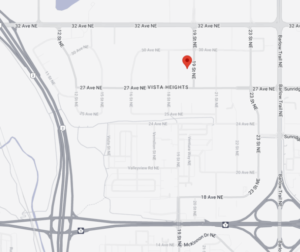The Importance of a Personal Directive
It is very valuable to have a plan in place should you ever lose the ability to make decisions for yourself, now more than ever. Planning for incapacity can be a confusing and overwhelming task. This blog post will review the basics of a Personal Directive and why it is so important.
What is a Personal Directive
A Personal Directive is a legal document that allows you to determine who will make personal (non-financial) decisions on your behalf if, due to illness or injury, you ever lose the mental ability to make those decisions for yourself. This can include decisions related to health care, housing, and treatment. The person you appoint is referred to as your “Agent”.
Why is it beneficial to have a Personal Directive?
A Personal Directive is a relatively inexpensive way to plan for your own incapacity. Without a Personal Directive, if you become mentally incapacitated it may be necessary for your family to make an application under the Adult Guardianship and Trustee Act for an Order appointing a guardian to make personal decisions on your behalf.
Who can I name as my agent?
Your agent must be eighteen years of age or older at the time the Personal Directive takes effect. Being an Agent can take a lot of time so you should discuss your decision with the person you wish to appoint as your Agent. You can also appoint more than one Agent.
What decisions can my agent make on my behalf?
Unless you specify otherwise in your Personal Directive, your Agent will have the authority to make decisions with respect to any non-financial matters including:
- health care;
- accommodation;
- with whom a person may live and associate;
- participation in social, educational and employment activities; and
- any non-financial legal matters such as providing consent for the release of medical records.
When does my Personal Directive come into effect?
A Personal Directive comes into effect when an individual lacks the capacity to make decisions for himself. Mental capacity can be determined by either the person or persons named in the Personal Directive to assess capacity, after consulting with a physician or psychologist, or by two service providers, at least one of whom is a physician or psychologist.
Unless you state otherwise in your Personal Directive, it remains in effect until you revoke it, the Court revokes it, or you die. You can revoke your Personal Directive only if you have the mental capacity to understand what you are doing.
How do I make a Personal Directive?
We recommend speaking with a lawyer about your Personal Directive so you can ensure that it is drafted correctly to most accurately represent your wishes. Contact our lawyers at Brar Law for a consultation or for more information.




